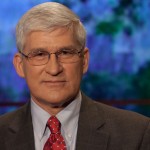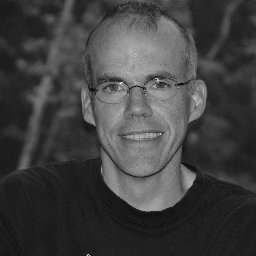I’m pretty sure that there’s only one issue I’ll be judged on — we’ll all be judged on — in a few decades, and that’s how we dealt with the crisis of climate change. The other troubles we face are the normal, hard troubles that have affected civilization since the start, from poverty to crime to inequality, and we have to deal with them. But this is something new and different, a challenge so large it threatens to render meaningless everything else we do. So we’ll put it at the top of our agenda: I’m going to try and block every new source of fossil fuels I can find (the Keystone pipeline, the coalfields of the Powder River basin, and so on) and I’m going to put the full power of the federal government behind a crash program to insulate homes, scale up energy efficiency and move us toward renewable energy far faster than markets can do it alone. And above all I’m instructing my secretaries of state and defense to make this the focus of our diplomacy going forward, for no issue between states matters as much as reaching a powerful consensus on climate.
Bill McKibben explained the catastrophic new math of climate change in a Q&A with us in July. He is the author of a dozen books about the environment, beginning with The End of Nature in 1989, regarded as the first book for a general audience on climate change. He is a founder of the grassroots climate campaign 350.org.
















